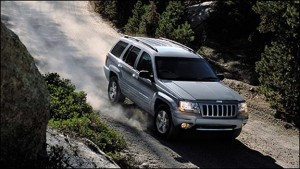Federal safety regulators have markedly expanded a probe they began nearly two years ago examining whether millions of Chrysler-made sport-utility vehicles face an unduly high risk of catching fire in rear-end collisions.
The National Highway Traffic Safety investigation, launched in August 2010, initially focused on 3 million Jeep Grand Cherokees produced between 1993 and 2004. The agency has now added another 2.1 million 1993 to 2001 Jeep Cherokee and Jeep Liberty SUVs.
The problem appears to center around the rear-mounted placement of the plastic gas tanks used in the three models which may make them more vulnerable to catching fire. NHTSA has so far received reports of 15 deaths and 41 injuries related to the potential problem.
According to a government analysis, there is “a higher incidence of rear-impact, fatal fire crashes for the Jeep products.”
Chrysler officials downplay the issue, though David Dillon, Chrysler’s head of product investigations, acknowledged in an interview with the Detroit News that, “Grand Cherokee may have more of these events than their competitors.” But, on the whole, Dillon insisted, “Those vehicles essentially are performing the same as their peers.”
The investigation follows a complaint by the non-profit consumer group, the Center for Auto Safety, which faulted the placement of the gas tanks in those older Jeep SUVs. The tanks were mounted behind the rear axle – in years past, a common industry practice – where they were reportedly prone to being punctured in a multi-car rear collision or following a rollover accident.
The CAS contends the older versions of the Jeep Grand Cherokee had fatal fire rates four times that of competitors – and six times higher than newer models not covered by the NHTSA investigation. Chrysler disputes those figures.
As with many other manufacturers, Jeep moved the gas tank on its various Jeep models forward of the rear axle and inside the protective frame starting in 2005.
Chrysler acknowledged it has settled numerous lawsuits connected with Jeep fires without trial – while demanding plaintiffs sign confidentiality agreements. The maker also insisted that is not an improper practice.
Separately, NHTSA this week ordered the expansion of a recall of the Jeep Liberty to now cover about 350,000 SUVs produced between July 2003 and June 2007. The service action is blamed on excessive corrosion that can be caused by road salt, leading to a failure of the rear suspension and potential vehicle crash.
(For more on the Jeep Liberty recall, Click Here.)

